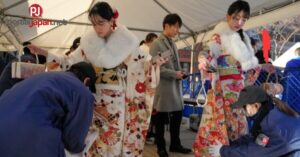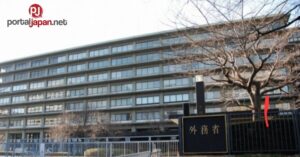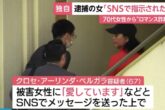
TOKYO — A proposed legal amendment that would allow permanent residence permits to be revoked if foreign residents in Japan intentionally fail to pay taxes and social insurance premiums has become a point of contention in the Diet discussions, with the government unable to answer a question posed by an opposition legislator.
Lawmakers have been discussing a bill to revise related laws that would create a new foreign worker training system to replace the current Technical Intern Training Program. Opposition parties have repeatedly criticized the provision about revocation of permanent residence status.
The new system aims to accept unskilled foreign workers in fields facing labor shortages. The government has added deliberate failure to pay taxes and insurance premiums to the conditions for revocation of permanent residence permits to the bill in anticipation of an increase in the number of people wishing to live permanently in Japan. It maintains the measure would be limited to cases of malicious intent, and would not be applied in cases of nonpayment due to unavoidable circumstances that aren’t the individual’s fault. The government also says that even if permanent residence permits are revoked, many could expect to be granted another status of residence with the Ministry of Justice’s authority, and is calling for understanding.
However, the proposal has sparked criticism from some opposition parties, which argue that there was no basis for revising the laws as no statistics existed on nonpayment by permanent residents. In response, the Immigration Services Agency of Japan produced the results of a sample survey on May 8. Based on applications for permanent residence status for children born to permanent residents, the agency examined 1,825 cases for which screening was completed between January and June 2023, and found that there were 235 cases of nonpayment by the permanent residents providing for those children.
In the sample survey, the rate of nonpayment of the national pension premiums was a little over 10%. According to the Ministry of Health, Labor and Welfare, the final nonpayment rate for the pension plan for the entire country in fiscal 2020 was just under 20%.
At a meeting of the House of Representatives’ Committee on Judicial Affairs on May 8, lawmaker Sayuri Kamata of the Constitutional Democratic Party of Japan (CDP) criticized the government, saying, “If they (foreign residents) are found to have not paid, they should just be sent a letter demanding payment, and have their assets investigated and seized, just like Japanese people. Why do something like revoking permanent residence status?”
The matter was also discussed during deliberations at the House of Representatives’ Committee on Health, Labor and Welfare on May 10, with legislator Chinami Nishimura of the CDP raising questions about the sample survey. She asked the government about the number of willful nonpayment cases, which would be subject to revocation of permanent residence permits, among the 235 cases of nonpayment, but officials couldn’t answer. Nishimura stated, “This is a baffling addition to the reasons for revocation. I cannot agree with it.”
Lower house member Yasushi Adachi of Nippon Ishin (the Japan Innovation Party) demanded the government accurately grasp the situation regarding the rate of nonpayment, not merely conducting a sample survey.
(Japanese original by Kentaro Mikami, Tokyo City News Department)
















Join the Conversation